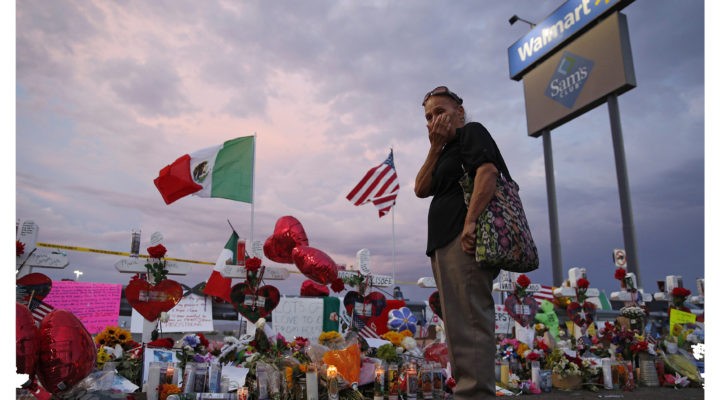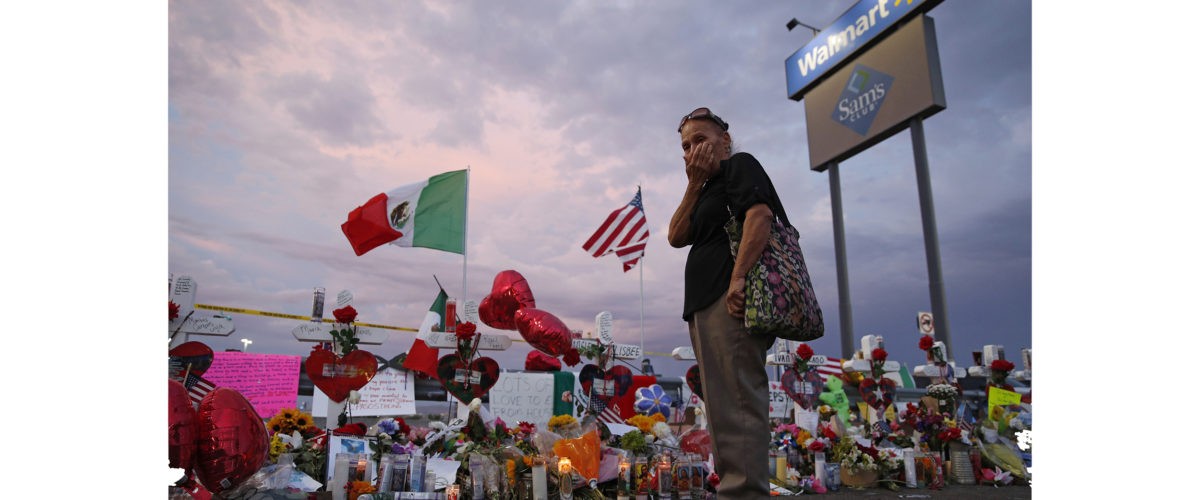Two years after the gun massacre at an El Paso Walmart, fears of “the great replacement” continue to stoke violence in America, according to participants in a livestreamed memorial for the 23 killed on Aug. 3, 2019.
White supremacists emboldened by conservative news outlets and unchecked social media access have inspired a domestic terrorist movement that was responsible for the El Paso mass shooting as well as the Jan. 6 insurrection at the U.S. Capitol, said participants in the memorial.
Tying it all together is a popular white supremacist myth known as “the great replacement,” a fear often shared on Fox News and social media that whites are being edged out by people of color, said Jonathan Greenblatt, CEO of the Anti-Defamation League. He was among the speakers at the memorial event, titled “A Brighter Tomorrow: Remembering the Victims of the El Paso Massacre and Addressing Disinformation through Social Media.”
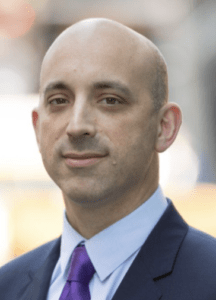
Jonathan Greenblatt
“This toxic idea states that unless immediate action is taken, the so-called white race is doomed to extinction by an alleged rising tide of color reportedly controlled and manipulated by Jews,” Greenblatt explained. “It’s the ‘great replacement theory’ that underpinned the El Paso shooter’s manifesto when he wrote that his attack was a response to ‘the Hispanic invasion of Texas.’ He said he was defending America from cultural and ethnic replacement brought on by an invasion.
“This kind of language is untenable in any context, and it can have homicidal consequences,” he added. “Unfortunately, this rhetoric has not abated since El Paso.”
The League of United Latin American Citizens hosted the online discussion with speakers including its own leadership; Greenblatt; the leader of National Hispanic Media Coalition; a member of Congress; and a White House domestic terrorism expert. Each expressed grief at the loss of life from the 2019 deaths and called for unity in opposing the racism that compelled the gunman to drive hundreds of miles specifically to kill Mexicans.
“These were victims of the rhetoric of hate we see coming from Washington and Austin and from hate radio and TV, LULAC President Domingo Garcia said, adding that racist speech radicalized the El Paso shooter and the insurrectionists in Washington, D.C.
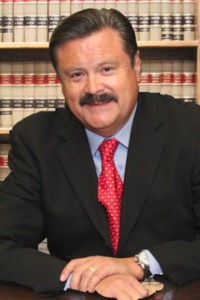
Domingo Garcia
A march held a week after the shooting demonstrated the spirit of unity that began the healing process for El Pasoans and that is still needed as the murder victims are remembered, Garcia said. “We need to celebrate their lives, uplift their memories, but we need to come together as a community to continue to fight because peace can overcome hatred.”
Greenblatt said the ADL has made “a firm and unyielding commitment to fight hate on the ground and online.”
The reasons requiring such action are disturbing, he said. “In the last few years, we’ve watched the growing normalization of hate spreading in our nation and across the globe, and the interdependency of the online and offline hate is simply indisputable.”
He cited the massacre in El Paso, the shooting at the Tree of Life synagogue in Pittsburgh, Pa., in 2018, in which 11 died, and the two mosque shootings in Christchurch, New Zealand, that killed 51 in 2019.
“Unchecked hate on social media and other platforms, and the misinformation that spreads from it, we’ve seen has deadly consequences,” Greenblatt asserted.
Phrases associated with the movement are unmistakable and include “one nation against invasion,” “mass immigration is white genocide,” “deport illegal aliens” and “deport them all.”
Another may be more widely familiar: “Build the wall.”
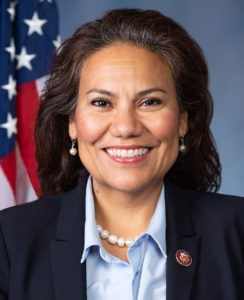
Veronica Escobar
Democratic U.S. Congresswoman Veronica Escobar of El Paso said the need to act is clear but action remains emotionally difficult on the anniversary of the Walmart massacre.
“This has been a day I have been thinking about for some time with a sense of pain and dread because of everything we are going to relive,” she said. “But we are going to go forward and learn from these painful moments.”
One lesson is that the 2019 shooting put El Paso “at the crossroads of our country’s hate epidemic,” Escobar added.
Another is that insufficient actions have been taken to prevent further massacres. She cited a new Texas law permitting state residents to carry firearms without a license beginning Sept. 1.
“It is tragic to know that not only have we not, as a country, learned from the tragedy of that day, but we have begun moving very sharply in the wrong direction. In my state, we have seen not just a lack of interest in gun violence prevention, but we have seen essentially a state legislature whose interest it is to flood the streets of Texas with guns. That will create incredible harm in our state,” she said.
“We have also seen leaders with the loudest bully pulpits in our state using xenophobia and racism to fuel the same kind of hatred that led up to Aug. 3.”
“We have also seen leaders with the loudest bully pulpits in our state using xenophobia and racism to fuel the same kind of hatred that led up to Aug. 3.”
The El Paso shooter told authorities at the time he had set out specifically to target Mexicans. Investigators also found that Crusius had shared online his concerns about Hispanics invading Texas. He drove from the northern suburbs of Dallas to El Paso — 650 miles — to perpetuate his terror.
“What allows that to spread is social media and very powerful platforms that are not yet regulated,” Escobar said. “As we have dialogue and seek to do better and create a country where families can live free from fear, I hope we can come up with concrete answers and I hope Congress develops the political will and courage to keep everyone safe.”
Opponents of white supremacy must transform the grief from tragedies like the El Paso shooting into a sense of urgency in combating domestic terrorism, said Joshua Geltzer, deputy U.S. Homeland Security adviser and deputy assistant to President Joe Biden on domestic terrorism.
The White House recently developed a national strategy for combating domestic terrorism. The strategy seeks to assess threats, prevent attacks and give law enforcement and prosecutors the tools needed to effectively respond when attacks occur, he said.
The approach also calls for addressing “the racism that fuels the terrorism we saw in El Paso” by tracking firearms movements and countering white supremacist misinformation disseminated online, Geltzer added.

Brenda Castillo
That misinformation includes blaming Hispanics for the spread of COVID-19 and of invading the border, said Brenda Castillo, CEO of the National Hispanic Media Coalition.
“I was not surprised about another terrorist attack done by a white terrorist,” she said of the El Paso Walmart killings.
Castillo said social media outlets added to the crisis by running ads for then-President Donald Trump that spread false information about migrants at the U.S.-Mexico border.
“Those ads were directed at spreading hate and disinformation about Mexicans, immigrants and all other brown natives Trump deemed criminals and rapists,” she said. “To social media companies we say, enough is enough. How many more must die before we hold social media companies accountable for the violence and harassment that results from their inaction?”
Castillo said her coalition has demanded those outlets disclose how their English-to-Spanish translation algorithms work and how Spanish-language posts are moderated, and by whom.
“To prevent future massacres, we must stop online hate and disinformation. Platform self-regulation does not work. A federal agency must enforce it.”
Related articles:
Seeing gun violence as a pro-life issue | Opinion by Shane Claiborne and Michael Martin
El Paso shooting puts Christian nationalism on trial
I’m a pastor who refuses to offer ‘thoughts and prayers’ for these people | Opinion by Wendell Griffen

